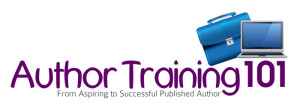 It’s time to take the work you’ve done to hone your book idea and discern the benefits it provides readers and create a title for your book. In previous posts, you learned how to look at your book idea’s angle and theme, benefits, and purpose. You also created a book pitch. All of these skills can be put to use in creating a title that will help your book succeed.
It’s time to take the work you’ve done to hone your book idea and discern the benefits it provides readers and create a title for your book. In previous posts, you learned how to look at your book idea’s angle and theme, benefits, and purpose. You also created a book pitch. All of these skills can be put to use in creating a title that will help your book succeed.
You may already have a title in mind, but more often than not the first—or even second or third—title you come up with doesn’t represent the best title. Just as with everything else about your book project, your title must promise readers that the book you’ve written will add value to their lives in a way that they seek desperately, or that it will fulfill a desire, tell a compelling story, or in some other serve their interests. It has to answer this question: What’s in it for me?
How to Write a Nonfiction Book Title
When creating a title for a nonfiction book you might use:
- a play on words
- alliteration
- a popular phrase
- slang
- your subjects name or title
You might try to highlight something unique about your subject. If your book falls into the self-help genre, you want your title to:
- identify the reader’s problem
- offer a solution to a problem
- give readers hope
- be specific and to the point
- cut straight to the chase
Readers shouldn’t wonder what nonfiction books are about; the titles should clearly tell them. For example:
- Change Your Thoughts, Change Your Life by Wayne Dyer
- Secrets of the Millionaire Mind by T. Harv Eker
- Secrets 0f Silicon Valley by Deborah Perry Piscione
- Unsinkable by Debbie Reynolds and Dorian Hannaway
- Give And Take by Adam Grant
- Killing Kennedy By Bill O’Reilly And Martin Dugard
- Salt Sugar Fat by Michael Moss
John Kremer, author of 1001 Ways to Market Your Books, recommends titles that are no more than five words “because short titles are more memorable. You can add a subtitle to give more information. Having a number in the title can be good, too—particularly the number seven as in The 7 Habits of Highly Effective People.
Here are other book titles that contain numbers:
- 101 Things You Need To Know by Julie Mullarkey-Gnoy
- The Seven Spiritual Laws of Success by Deepak Chopra
- 10 Secrets for Success and Inner Peace by Wayne Dyer
- The Five Dysfunctions of a Team: A Leadership Fable by Patrick Lencioni
Nonfiction book titles also might feature:
- Tips
- Habits
- Keys
- Tools
- Ways to do something
Create Titles with Emotional Appeal and Branding Potential
In Write the Perfect Book Proposal, Jeff Herman and Deborah Levine Herman say a book title can be longer if the first few words “provide emotional appeal.” Book titles that evoke an emotion, indeed, tend to sell well. Readers must feel as if they can’t live without the information within your book’s covers. Additionally titles that create what the Hermans call “a motivating visualization” also draw more readers; if readers can “see” in their minds’ eyes the end result that will come from reading your book they are more likely to carry your book to the register.
Kremer says, “Consider coining a word of your own as John Naisbitt did with Megatrends.” Or follow the lead of other fiction and nonfiction authors who made their titles brandable, like:
- Jack Canfield and Mark Victor Hansen’s Chicken Soup for the Soul series
- Joshua Piven’s The Worst Case Scenario Survival Handbook
- Jay Conrad Levinson’s The Guerilla Marketing series
- J.K. Rowling’s Harry Potter series
- Stephanie Meyer’s Twilight Saga
- Ian Rankin’s Inspector Rebus series
- R.S. Stine’s Goosebumps series
- James Patterson’s Alex Cross series
- Stan and Jan Berenstain’s Berenstain Bears series
- Ann Rice’s The Vampire Chronicles
You can write a much longer subtitles especially if your title is short or witty and needs further explanation. I like this these:
- Lapsing into a Comma: A Curmudgeon’s Guide to the Many Things that Can Go Wrong in Print—and How to Avoid Them
- Damn! Why Didn’t I Write That? How Ordinary People are Raking in $100,000.00…or More Writing Nonfiction Books & How You Can Too!
Write Fiction Titles That Offer a Sense of Story
Fiction titles that offer a sense of story, evoke emotion or provide a motivational visualization work well, too. Look at some recent bestsellers:
- Walking Disaster by Jamie McGuire
- Fever by Maya Banks
- Starting Now
- The Host by Stephenie Meyer
- Breath of Scandal by Sandra Brown
- Bones Are Forever by Kathy Reichs
It’s possible to get a sense of their story lines or a feeling for what they might be about, especially if you know the category or genre in which the author writes.
Use Keywords in Your Book Title
It’s also important for book titles to be “searchable” and “discoverable” on the Internet. Therefore, if you can include keywords or keyword phrases in your title, which are the words people use when they conduct Internet searches for topics, you increase the chance your book will be found during their searches. Nonfiction books often have quite long subtitles in an attempt to include as many search keywords as possible. Novels use this tactic in title and sometimes even in a subtitle as well more and more often.
Craft Marketable Titles
Training yourself to write a marketable title and subtitle represents an important part of Step #2 in the Author Training process. It requires seeing your book not just creatively but from a business perspective. The marketing team in a publishing house makes the decision about a book’s title. Like them, you must make this decision based upon what title will help you book sell the most copies not upon what you like.
Successful books need great titles. Of course, to some extent you never know what will sell or why. Who would have thought books with titles like these would become big hits?
- The Effect of Gamma Rays on Man-in-the-Moon Marigolds by Paul Zindel
- Who Moved My Cheese? by Spencer Johnson
- The Happy Hooker by Xaviera Hollander
- Eats, Shoots & Leaves by Lynne Truss
You can try to increase the odds of your title helping sell your book. If you know what your book is about and its benefits, writing a title should come easily at this point. If you don’t know what it’s about, it will feel difficult.
 Note: You can read additional blogged draft excerpts from my new book, The Author Training Manual (Writer’s Digest Books, March 2014) here. Only select pieces from the manuscript, a “working draft,” were posted—not the complete manuscript. Read the next post in the The Author Training Manual blogged-book series by clicking here. Purchase the book on Amazon.com, barnesandnoble.com or at Writersdigestshop.com.
Note: You can read additional blogged draft excerpts from my new book, The Author Training Manual (Writer’s Digest Books, March 2014) here. Only select pieces from the manuscript, a “working draft,” were posted—not the complete manuscript. Read the next post in the The Author Training Manual blogged-book series by clicking here. Purchase the book on Amazon.com, barnesandnoble.com or at Writersdigestshop.com. Lea rn how to create a successful book—one that sells to publishers and to readers—by developing an AUTHOR ATTITUDE and writing a BUSINESS PLAN for a MARKETABLE BOOK. Register for the AUTHOR TRAINING 101 Home-Study Course, and go from aspiring to successful published author! This course is based on The Author Training Manual. If you like what you’ve read here, you’ll love the course.
rn how to create a successful book—one that sells to publishers and to readers—by developing an AUTHOR ATTITUDE and writing a BUSINESS PLAN for a MARKETABLE BOOK. Register for the AUTHOR TRAINING 101 Home-Study Course, and go from aspiring to successful published author! This course is based on The Author Training Manual. If you like what you’ve read here, you’ll love the course.
Image credit: Loopall / 123RF Stock Photo
Frances Caballo says
I’ve seen a couple of posts about book titles but this is the most comprehensive one that I’ve seen. Thanks, Nina, for the great advice. I’m definitely going to save this post for future reference and I’m going to post it in the APE Community on Google+.
Nina Amir says
Thanks, Frances. I really appreciate your comment and you sharing the post. I’ll also let my editor know the info was well received (since it’s a blogged portion from my new book).